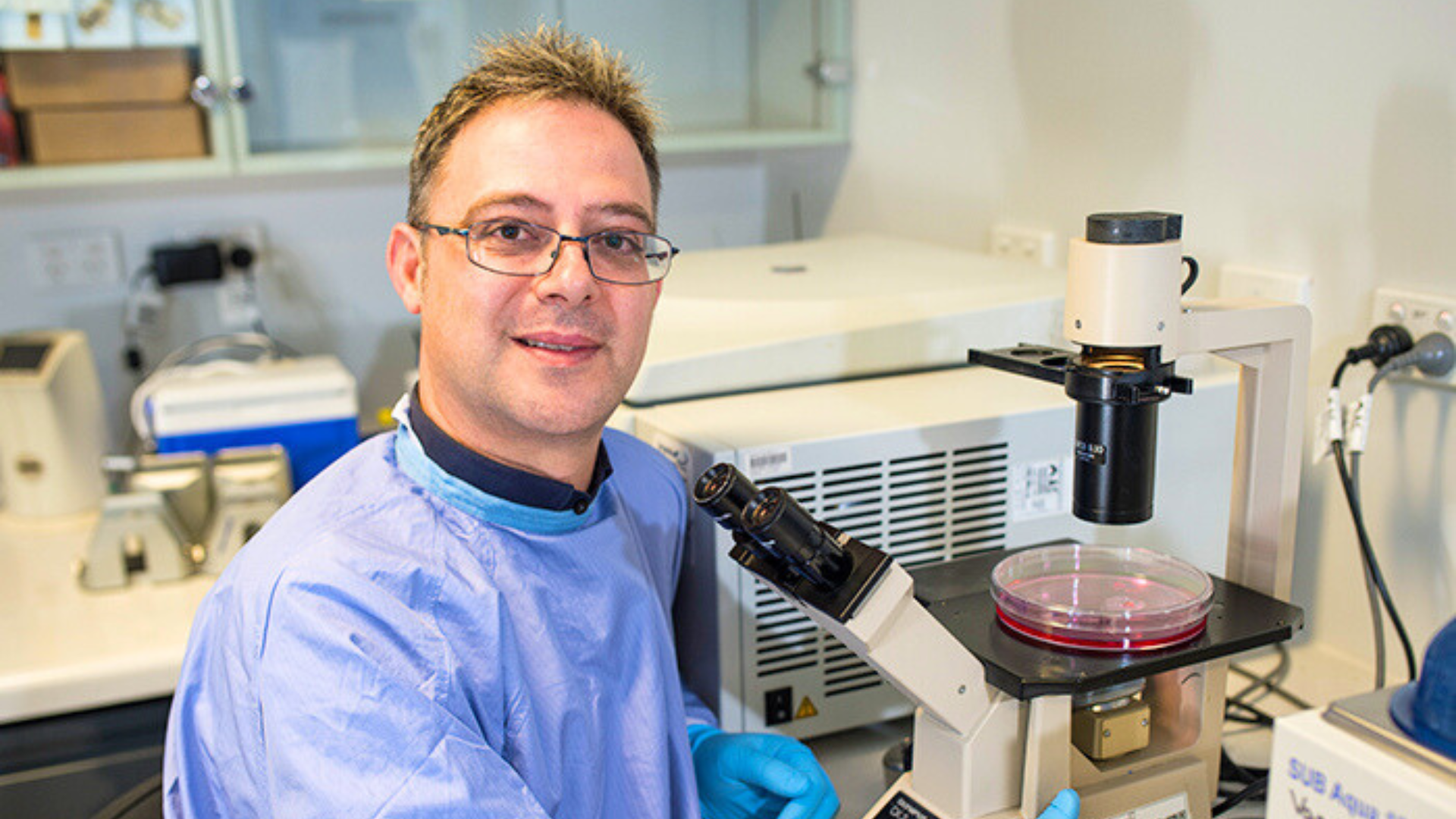By Ilias Karagiannis
The image of Dr Steven Petratos’ grandfather, confined to a chair with trembling hands and a gaze that portrayed unrelenting pain, left an indelible mark on his childhood.
Diagnosed with multiple sclerosis during the German Occupation in Greece, his grandfather’s struggle became a constant presence in Dr Petratos’ early life. Although born years later, Dr Petratos grew up witnessing his grandfather’s daily battle with the disease.
These painful yet powerful memories became a source of inspiration and a driving force for Dr Petratos.
Born in Athens, Greece and raised in Australia, he chose to dedicate his life to combating the illness that marked his family’s history, transforming his childhood memories into an ambitious scientific mission.
Now, Dr Petratos, senior researcher of the Neuroscience Department at Monash University, is working on a groundbreaking treatment called Diaprotectome.
“This is a supplementary drug aimed at repairing myelin, a process critical for the recovery of the central nervous system,” he explains to The Greek Herald during a sunny morning meeting near the Acropolis.
Dr Petratos was in Athens to discuss clinical trials of the innovative drug with Greek authorities, a step that could change the outlook for multiple sclerosis treatment.
“This trip is not just scientific—it’s personal, it’s familial,” says Dr Petratos as he momentarily glances at the Parthenon. His story is deeply rooted in family tragedy, yet it has inspired hope for thousands of others.

Science in the service of humanity
Preclinical studies have already yielded impressive results.
“In experiments with mice exhibiting severe neurological symptoms like paralysis, we saw that the treatment helped them walk again. Their recovery coincided with the restoration of myelin,” he explains.
The new therapy is not intended to replace existing treatments but to complement them.
“Its oral administration as a pill makes it easily accessible. We aim to improve cognitive function and reduce fatigue—two of the most challenging symptoms for patients,” he notes.
Dr Petratos’ presence in Greece is tied to preparations for clinical trials across ten hospitals nationwide, involving 400 patients.
“Collaboration with Greek authorities and scientific leaders, such as Professor Nikolaos Grigoriadis, is vital. Greece is not just my homeland—I want to support Greek patients and bolster pharmaceutical research here. I want to give back to Greece,” he emphasises.
The goal of these studies is to confirm the effectiveness of Diaprotectome. If successful, phase III multicentre trials will follow.
“It takes time and collaboration to reach a point where regulatory agencies approve a drug for use. However, each step brings us closer to transforming lives,” Dr Petratos says.

Meeting with Greece’s Health Minister
The day after The Greek Herald’s interview with Dr Petratos, he had a scheduled meeting with Greece’s Health Minister Adonis Georgiadis. The meeting reaffirmed a shared commitment to advancing multiple sclerosis research and treatment in Greece.
According to sources, Minister Georgiadis expressed full support for the creation of a National Network for Multiple Sclerosis, which will serve as the foundation for nationwide neurological clinical trials. The minister has already approved funding for the network through national and EU resources, positioning Greece as a leader in global efforts against neurodegenerative diseases.
“Yes, the meeting was successful. The digital patient registry for all MS clinical centres has been signed and validated by the minister, just in time to support our clinical trials,” Dr Petratos exclusively told The Greek Herald.
Diaprotectome enhances existing treatments and offers hope for improving patients’ quality of life. The Ministry’s support is expected to accelerate the process, solidifying Greece’s role in pioneering neurological research.
The results of the clinical trials, to be conducted in both Greece and Australia, will determine the drug’s future. By late 2025, the effectiveness of Diaprotectome in humans will become clearer.
If all goes according to plan, Diaprotectome could be available on the market within three to four years, marking a new era in multiple sclerosis treatment.
“The process is demanding, but each step brings us closer to fulfilling our mission,” Dr Petratos concludes.
As our meeting ends, the Greek Australian scientist returns to his work with the passion and dedication of someone who has turned a deeply personal story into a driving force for scientific progress.
